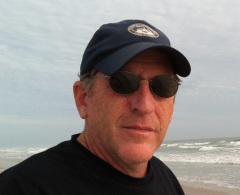The countdown is officially on with the conference a little over a week away and we're especially looking forward to the variety of workshop opportunities. Another of our faculty workshop leaders is non-fiction writer and Professor of Humanities Bob Kunzinger. Kunzinger's forte is essay and memoir where he is able to explore his topics on a smaller scale. He knows the importance of a narrative that packs a punch. Kunzinger discusses his writing approach below:
"The label "non-fiction" writer is as vague as saying I am a musician or a painter. My background and comfort zone is in journalism--my undergraduate degree is in journalism and the primary influences of my writing life, including Ernie Pyle, Ernest Hemingway, and a few others were all journalists. My earliest writing assignments were feature stories about small adventures I took, so I suppose my subject matter hasn't changed much. I approach writing from a very lyrical perspective both on the page and in the research; I like to let go of labels and modes and see what happens, make a few left turns. As far as the "flash" aspect, I like the haiku mentality: focus on the most narrow of aspects as deeply as possible.
My constant thought process includes asking myself "so what's the point?" It isn't enough for me in non-fiction writing to write about Spain or Russia or Africa, I feel the need to digress to some universal reaction to the narrative. Ideally when you read something I don't want you to see my pain, I want you to see your own. Of course, it's a very good and rare day I reach the ideal!"
Kunzinger's creative nonfiction workshop "So Who Cares?" will be held from 11:45-1:00 pm on Friday, November 6th (location TBA). To secure your spot, check out FLAC registration for more information.



